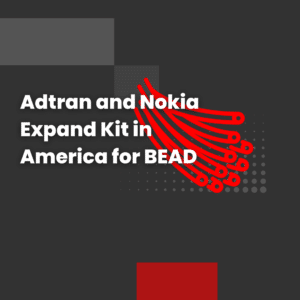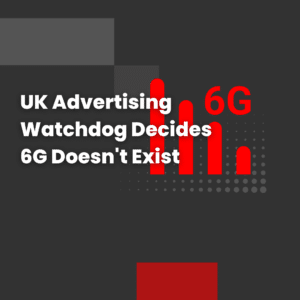Last Wednesday, Vodafone and Three published an survey that over half (53%) of UK adults think 5G can benefit their day-to-day more than other viral technology. This includes all the recent headline-dwellers, such as AI. Healthcare, utilities like energy and water, and railways were top of the list for sectors the public thinks could benefit the most from 5G. Vodafone also note that these are the areas people have been the most frustrated with in the past year.
It’s clear that this report is a lobbying effort, with Vodafone rattling on about ‘accelerating investment’ into the 5G sector with Three.
Ahmed Essam, Vodafone CEO, commented on the recent launching of their 5G standalone network, ‘5G Ultra’.
”Our proposed combination with Three UK will give us the scale to accelerate investment in the UK’s digital future. The launch of Vodafone 5G Ultra gives us a taste of what life could be like. Together, we can deliver innovation further and faster.”
To back this up, Vodafone don’t hesitate in showing us some economic models it commissioned from WPI Economics.
Within healthcare, 5G could enable remote check-ups and real-time patient monitoring using IoT devices. This would greatly reduce the burden on on GPs and hospitals, that has only seemed more and more clear lately. Shifting this balance onto preventative technologies could save the NHS up to £1 billion annually.
As for railways, 5G-enabled sensors to detect problems on railways and trains could reduce delays and cancellations. This would save passengers more than 25 million hours over 5 years. And time clearly is money in this case, with time saved equating to £326 million in productivity and wellbeing benefits.
Smart street lighting is also touched on, looking into how reducing energy consumption with real-time monitoring of street lights. They reckon it could save councils £700 million over five years, and reduce CO2 emissions by a million tonnes. That’s equivalent to 250,000 petrol or diesel cars.
When plans were announced to merge by the two telcos, they said it would enable them to invest £11 billion over the next decade, and cover 99% of the population with 5G standalone by 2034. They also claim that their merge could deliver a £5 billion yearly boost to the UK economy by 2030.
Publishing surveys like this give the companies a better edge in the public interest arguments.
These arguments will no doubt be huge for the future of the merger. However, less emphasis from both Ofcom and the UK Government on the quantity of MNO’s is encouraging for the telcos.
However, if the merge is to be approved, there’s far more down-to-earth problems both Three and Vodafone must address first.
As per Ofcom’s report, the combined company would have more than 525MHz of exclusive-use spectrum. This totally swamps EE, who currently hold the record at 370MHz. These combined holdings make up almost half of the UK’s overall sub-6-GHz mobile spectrum, and would include 40 MHz of contiguous 1400-MHz spectrum, 2x 20.8 MHz of contiguous 1800-MHz spectrum, and 90 MHz of contiguous 3.4-3.8-GHz spectrum.
In 2010, when Orange and T-Mobile’s merger was approved, it was conditional on the divestment of some of their 1800 MHz spectrum, which Three actually bought.
When Three unsuccessfully tried to purchase O2 back in 2015, the two had to pledge to sell spectrum to Sky and Virgin Media just to try and sway the antitrust watchdogs.
With this, regardless of the reports and surveys Vodafone and Three publish between them, the outcome of their merger will be decided by just how willing they’ll be to redistribute their spectrum among their own rivals with Ofcom.




